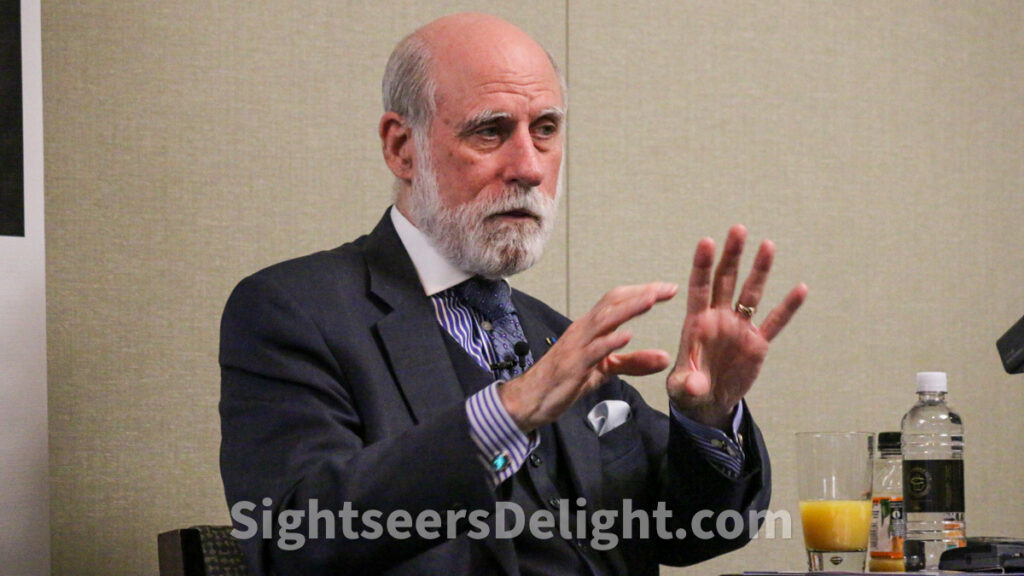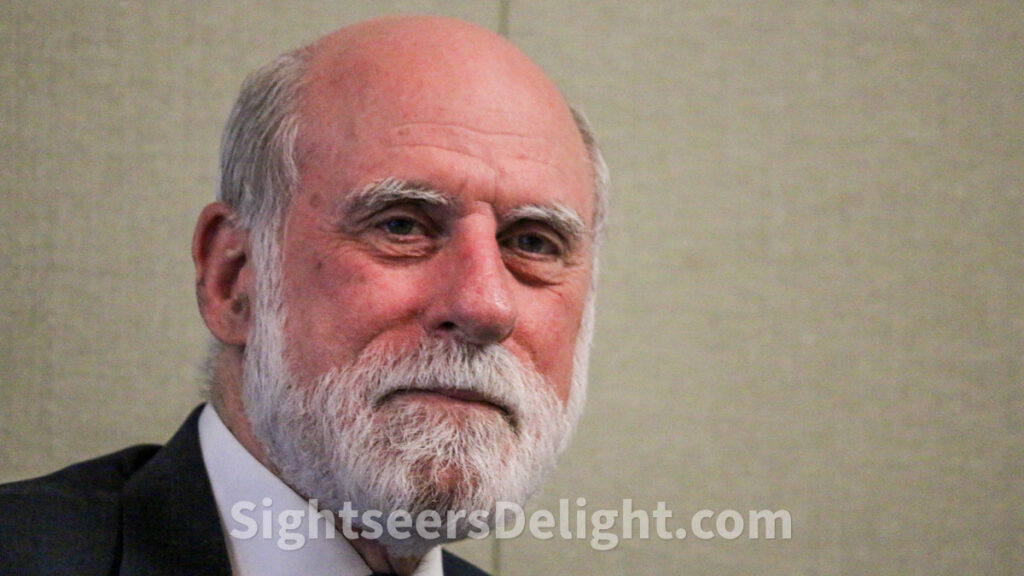

ATLANTA — Privacy is a key tenant of the country, and people shouldn’t try to label cyber security as different than offline security, the “Father of the Internet” told the Atlanta Press Club recently.
“We should be thoughtful here not to get all tangled up in stickling cyber in front of everything and then claiming it’s special,” Vint Cerf, chief internet evangelist for Google, said March 30. “Privacy is privacy, and it’s important, and it’s built into our constitution. We should be attendant to that.”
“We are interested in, I think, living lives of safety, but at the same time we like privacy,” Cerf said. “Somehow we have to make sure those are not necessarily in conflict with each other. Figuring out how to achieve that objective, I think, is still a challenge.”
Online privacy has been a hot-button issue in recent years, highlighted in part by Edward Snowden who in 2013 exposed a widespread government surveillance program. But, Cerf told the audience that a focus on building better software needs to take center stage.
“The real problem here is that we write crappy software,” Cerf said, drawing laughter from the audience. “I’m quite serious about this. Hardware has gotten faster and cheaper … (but) we still crank out software that has bugs.”
While an increased attention on software development and testing will help,Cerf said more laws won’t guarantee security from those who want to do bad.
“The next question is will those things be exploited? The answer is yes. What if there’s laws against that? The answer is still yes,” Cerf said. “We have laws that say you’re not supposed to commit fraud or steal or kill people and so on. People still get stolen from, they are defrauded and get killed. So, laws don’t do anything other than say something about the intent of the society. But, that doesn’t necessarily guarantee enforcement.”
Cerf also addressed the digital dark ages. Much like a language that has been lost to time, data that has been created could be lost as mediums — such as floppy disks and CD-ROMS — become obsolete.
“I now believe that it’s necessary for us to create what I’ll call digital vellum,” Cerf said. “We need a digital vellum, which preserves not only the bits but also the software that knows what the bits mean and the operating systems that ran the application software and a description of the hardware that ran the operating system that ran the application that knows what the bits mean.”